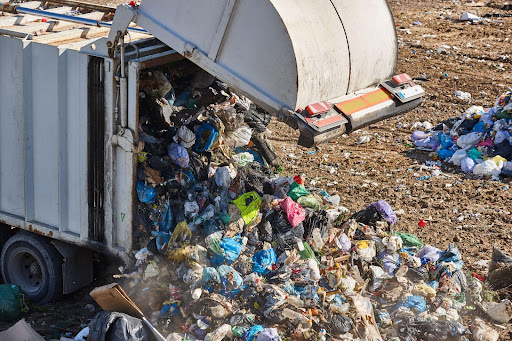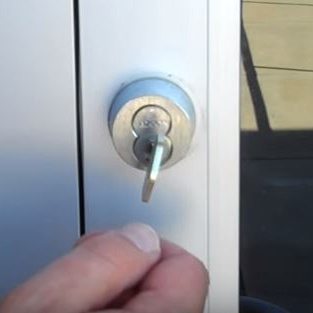Rekeyable IC Cores Reduce the Environmental Impact of Key Systems
In the past, we’ve discussed the differences between traditional locks and interchangeable (IC) core locks in terms of security. But with consumers gravitating toward sustainability more and more these days, we can’t ignore the environmental impact different lock types can have. 
It may seem like a small concern when it comes to locks and key control. But when you consider the amount of trash that can be generated by throwing away locks and cores after a rekey, waste concerns and sustainability need to be addressed. In this article, we will explain how rekeyable IC cores reduce the environmental impact of physical key systems compared to traditional locks and standard IC cores.
Traditional Locks
The traditional lock and key is probably the most ubiquitous solution utilized by most consumers. And while it may be the easiest and the least expensive to install, the traditional lock may also have the largest negative impact on the environment in terms of spent resources and generated waste. Depending on the type of hardware, traditional locks require complete replacement if a key goes missing or is unaccounted for or if the property owner or manager needs to change the locks for other security reasons. This means that the old lock and key are discarded, often into a landfill, contributing to the waste stream and consuming additional resources to produce new locks and keys.
Standard IC Cores
Standard interchangeable cores are definitely a step up from traditional locks. They were designed with large commercial or institutional facilities in mind. Interchangeable cores make rekeying easier, quicker, and more cost-effective. They are a type of lock that allows the entire lock core to be removed and replaced with a new one without the need for any tools. This can reduce the amount of labor and energy required for maintenance.
But in terms of environmental impact, IC cores can still generate waste in the long run, as the entire core needs to be replaced every time the lock is rekeyed. Granted, swapping out IC cores doesn't generate as much material waste as replacing entire traditional locks, but it can still add up in the long run for an organization that requires frequent rekeys.
Rekeyable IC Cores
An environmentally friendly option for physical key security is rekeyable IC cores. They offer the same convenience of rekeying as standard IC cores, but they can be rekeyed multiple times before the cores need to be swapped out. The rekeyable IC cores offered by InstaKey, for example, can easily be rekeyed by the end-user up to nine times before replacing the core. By rekeying the IC core instead of replacing it entirely, fewer resources are consumed, and less waste is generated.
Additionally, rekeyable IC cores can also be more cost-effective in the long run, as the user does not have to constantly replace the lock if a key is lost or if they want to change the locks for security reasons.
One Last Consideration on Adding Sustainability Measures to Your Key Control System
There’s one more thing to keep in mind when discussing the environmental impact of changing locks: Recycling.
Many organizations don’t realize they can recycle old keys, locks, and key cores instead of throwing them in the trash. But they really are recyclable. Throwing away old keys and key cores means more trash in landfills and more energy spent creating virgin metal. Locks and keys are made primarily from brass, which is a recyclable copper alloy. Since it takes 90% less energy to recycle copper than it takes to produce new copper, a lot of energy can be saved simply by recycling old locks and keys.
Spent IC cores in good working condition can be sent back to InstaKey, who will disassemble and repin them. This can greatly reduce the amount of waste associated with swapping out IC cores.
The bottom line is that standard IC cores and rekeyable IC cores can be more sustainable and environmentally friendly than traditional locks, depending on the specific use case and maintenance practices.
Read our sustainability guide to learn more about how to reduce the environmental impact of key systems.





.jpg?width=352&name=hands-open-a-door-key-lock-2021-08-29-14-35-30-utc%20(1).jpg)